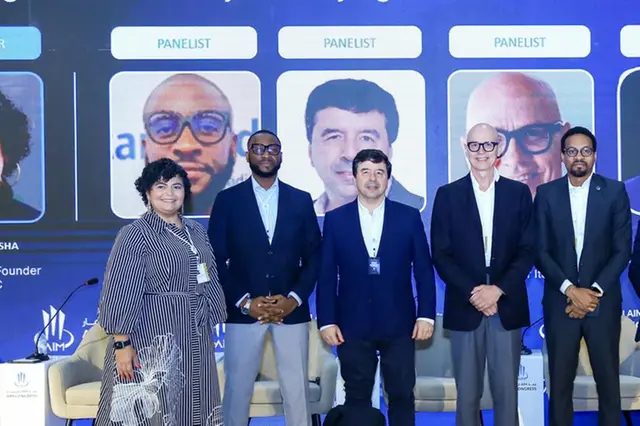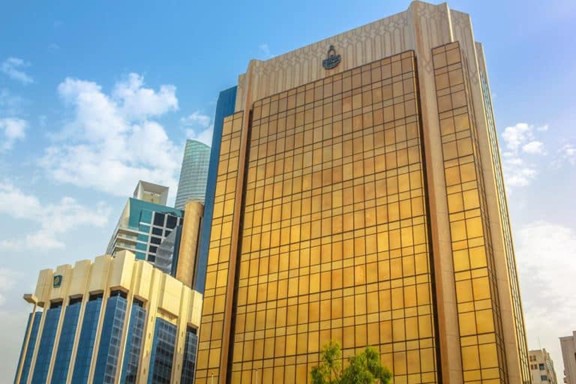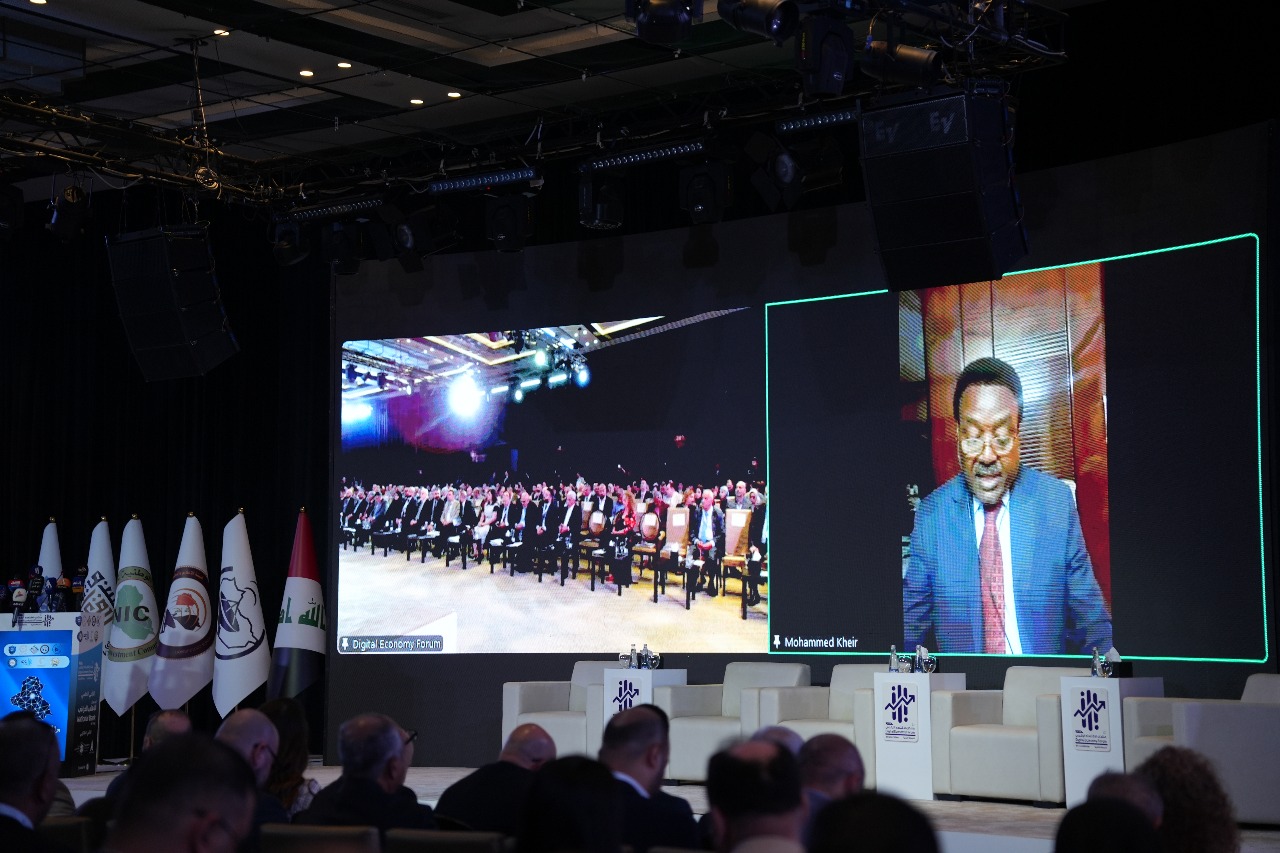Smart Cities at the forefront of discussion: Mayors share experiences on building digital cities of the future
April 10, 2025
Innovation and Entrepreneurship Session: Call for expanding support for startups and promoting youth-led digital solutions
Strategic MoUs signed to strengthen global economic cooperation and affirm AIM’s position as an international investment platform
Digital Economy and Artificial Intelligence: Tech leaders call for accelerating digital transformation and upskilling
Green Companies at the forefront: Calls for boosting investment in sustainable innovations in emerging markets
The third and final day of the AIM Investment Summit featured a roundtable of mayors and city leaders from around the world to discuss “Building the Digital City of the Future” and the importance of uniting efforts to drive digital transformation and smart city innovation. Berenguer Paul, UN Resident Coordinator, emphasized the crucial role of local leadership in global development, while Tunbuson Alake, Commissioner for Innovation, Science and Technology in the Lagos State Government, presented scenes from Lagos’s technology-driven transformation. During a systematic innovation plan, expanding digital infrastructure, and developing youth talent, Mayor John-Sharock Siah Siafa explained how the city is digitizing revenue systems, training youth in digital skills, and piloting smart waste management to improve urban services.
Amable de Jesús Hernández, Mayor of San José de Colinas, focused on expanding internet access, digital education, and using technology to achieve government transparency in Latin America’s post-COVID recovery. Tamraz Taghiyev, President of the National Assembly of City Municipalities of Azerbaijan, highlighted rural connectivity, smart city initiatives, and the need to coordinate efforts between local and national governments. Participants in the session recommended accelerating digitization through talent development, knowledge sharing, and flexible policy frameworks.
Innovation and Entrepreneurship
On its final day, the AIM Investment Summit hosted a panel discussion on innovation and entrepreneurship, moderated by His Excellency Dr. Hashim Suleiman Hussein, Head of the Investment and Technology Promotion Office of the United Nations Industrial Development Organization (UNIDO) in the Kingdom of Bahrain. The panel highlighted strategies for promoting entrepreneurial success globally. Dr. Hussein presented the efforts of the Global Entrepreneurship Alliance, launched in January 2025 and now operating in 54 countries, focusing on digital, environmentally friendly, and youth-led innovations.
Dalal Ahmed Al Ghais, CEO of the Bahrain Development Bank, highlighted policies supporting small and medium enterprises in Bahrain, including interest-free loans, women-focused programs such as the Riyadat program, and the BHD 100 million Estimia Fund to help startups expand. Mohammed Aboud of the University of Dubai spoke about business models for transforming universities into entrepreneurship incubators. Dr. Mohammed Sharif of ISESCO presented the “Awareness, Acceptance, Action” (3A) model and entrepreneurship programs that have reached more than 1,800 young people in more than 30 countries, with a focus on clean technology and education. Fadi Al-Din, Managing Director of Plants, highlighted the four pillars of the entrepreneurship ecosystem: infrastructure, policies, support, and culture, calling for investment in local innovation that has global potential. The AIM Global Foundation also signed a series of high-level memoranda of understanding, reflecting the summit’s position as a catalyst for promoting joint action between global partnerships and strategic economic cooperation. This confirms the summit’s success and its ability to achieve its strategic objectives of enabling cross-border cooperation and shaping the future of global investment. Among the most prominent international entities and institutions with which memoranda of understanding were signed were the American Chambers of Commerce, the St. Petersburg Chamber of Commerce and Industry, the Sverdlovsk Regional Business Support Foundation, the Eurasian Business Alliance, the Kazakhstan International Chamber of Commerce (Atameken), the TMK Research and Development Foundation, the UAE-Russia Business Council, the Ryazan and Tula Regional Chambers of Commerce and Industry, the Community Development Center of Armenia, the Amur Regional Chamber of Commerce and Industry, the Khabarovsk Regional Chamber of Commerce and Industry, the Krasnodar Regional Investment Promotion Agency, and the Cheung Kong Graduate School of Business. Expanding the Digital Economy
The sessions included a meeting of global leaders and experts in the fields of technology and innovation in a session titled “Leading the Scaling of Digital Economies – Reimagining Economic Innovation, Connected Industries, and Sustainable Communities.” The session was held under the theme of the digital economy. Speakers discussed the role of artificial intelligence in shaping inclusive and sustainable economies. The session’s main topics included exploring ways to use artificial intelligence ethically, the need to work on honing skills in these fields, and the importance of emotional intelligence in technology leadership. Mohamed Emad of IBM for the Middle East and Africa stated, “AI can be customized across all sectors and on a broad scale.” Charles Austin Angel of EPIRA.ai highlighted the importance of working together to enhance the digital economy across the world. Joseph Musolino of the SAS Institute described the current landscape as an “AI Renaissance,” and all economic and commercial sectors must keep pace with this development.
Green Startups Take Center Stage at Sustainability and Investment Panel
The panel, titled “Sustainability in Startups: Green Businesses – A Cross-Current Investment Perspective,” highlighted the critical role of startups in enhancing environmental and social impact. Moderated by Liz Krymalowski of Orbillion Bio, speakers highlighted the importance of green businesses in emerging economies, particularly in Africa and the MENA region, where sustainable innovations face local challenges such as waste management, pollution, and economic inclusion.
“Sustainability is about building sustainable businesses that create real value and deliver value to communities,” said Lindsay Miller, Managing Partner at MENA Moonshots. Gilbert Eweme, Continental Coordinator at Accelerate Africa, highlighted the importance of cross-border collaboration to scale impact, saying: “When Africa and the Middle East collaborate, we create a more resilient and connected innovation ecosystem.” Participants emphasized that entrepreneurs need supportive communities, inclusive policies, and investor support to bridge the gap between long-term sustainability goals and short-term business pressures, noting that sustainable startups are now well positioned to shape the future of regional economies.











